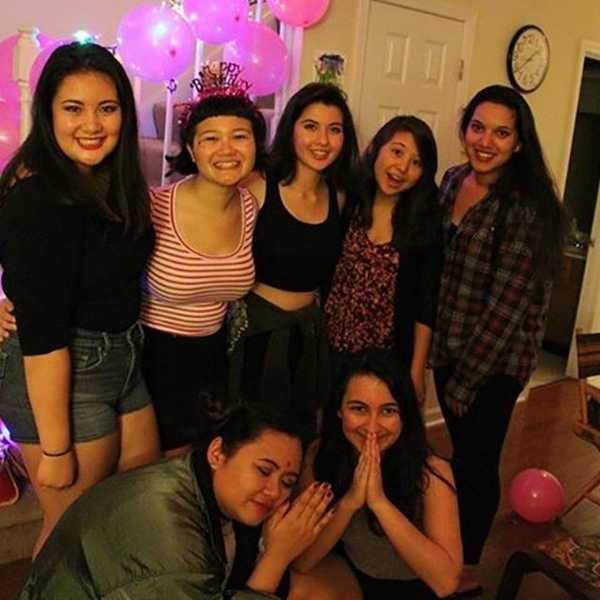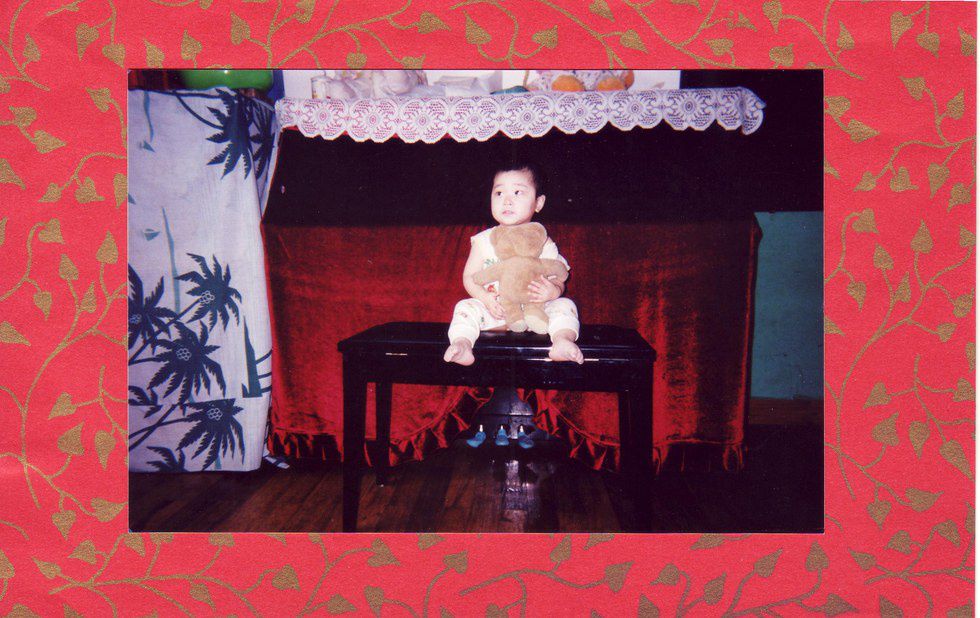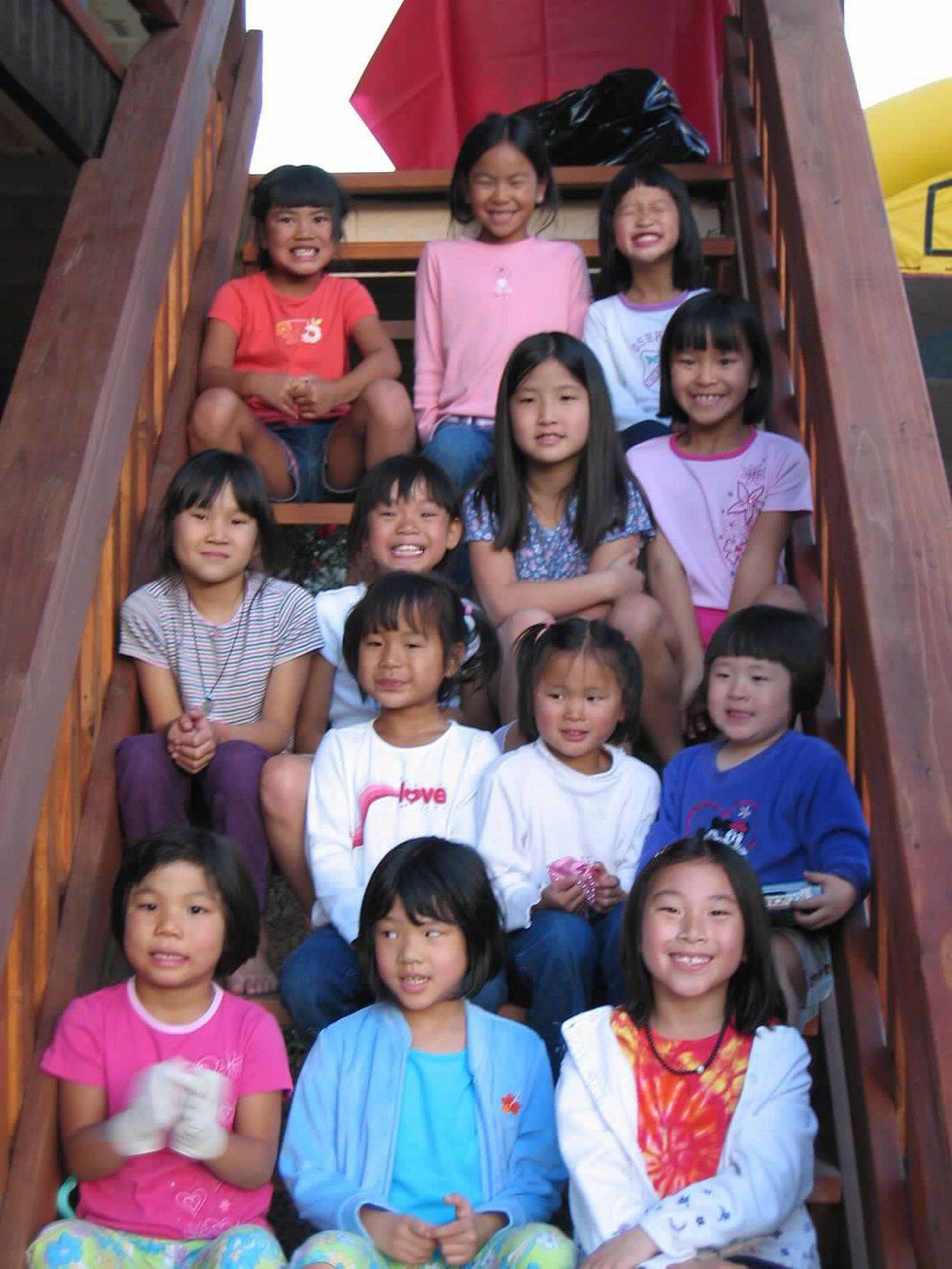When you see me with my family in public, you will most likely turn your head for a second glance. When I introduce my parents to you, you will probably look around a little until your eyes lay sight on the two older, Caucasians standing behind me. When waiting in line to buy groceries, your first inclination is to ask if we are together because my physical characteristics far differ from those of my parents. These are typical events that I encounter on a daily basis, reminding me that I am different.
I am an adopted Asian American.
I was born in Fuzhou, China in 1997. According to my parents, I was found on a street right outside of a police station, name-less, family-less and no reasoning for my abandonment. I was placed in an orphanage where I vied for constant attention, not knowing that the babies there outnumbered the caretakers. Little did I know that within a year, I would be sitting in the comfort of an air-conditioned house reading "Goodnight Moon" with people I could finally call my family. Of course, the beauty of adoption came with lifelong challenges.
Since I was so young when I came over to America, I cannot recall a single thing about China. All of my recollections are from the words of my parents and the very few pictures, faded and delicate, glued in our family photo album. Because of this, I feel as if I have been in America my whole life. When people ask me where I was born, I am always inclined to say right here, in America. I cannot remember a day where I didn’t live in a predominantly white suburb in Kansas. To be frank, I spent many years ignoring my differences, living under a false precept that I was just like everyone else.
Then on any normal day, I experienced one of those lifelong challenges of being an adopted Asian American. That challenge was racism. It was during recess on probably one of the nicest days of spring. I was playing with some friends by the playground when one of them turns to me, puts her fingers on the edges of her eyes, and pulls at them. I looked at her strangely because she looked crazy. She then says to me, “Hey, I look like you now.” No response. I went home that day and looked at myself in the mirror. For the first time, I noticed my almond eyes and my off-white skin color. I was not white with blonde hair and blue eyes. That is the day that I finally opened my eyes to the never-ending challenges of being an Asian American.
I began noticing stares everywhere I went. Phrases like, “Of course you got 100 percent, you’re Asian,” and, “You’re so smart. You’re probably going to be a doctor someday,” became the norm. However, one phrase hit my instability like a bullet: “Be more Asian.”
So, I decided to reconnect with my Chinese culture. I would probably fit in with other people who look like me. I started teaching myself about China, trying to learn basic Chinese phrases and rituals. I embraced my culture and went to Chinese New Year’s events and Moon Festivals. It was a forced attempt. My mind was set, but my heart was not into it.
Even with my attempts to get involved in the Asian community, I was again categorized as different. They would talk in their native tongue and then look at me, expecting me to know how to speak it as well. The stares and typical phrases never ceased to leave. Again, I was an outcast. How could it be that I couldn’t even fit in with my own culture?
Being Asian sets me apart from so many people, but being an adopted Asian American adds an extra layer of confusion and uncertainty. I am not just a minority. I am a minority within a minority.
Those seemingly endless encounters caused insecurities that I lived with for several years. I was ashamed to be different. I was ashamed to be myself.
Then I realized something.
My second chance at life was given to me because of all the differences that I have to offer. The moment I made that realization, insecurity and shame walked themselves to the door.
I am neither Asian nor American. I am both. When Asians see me, they can only see my lack of Asian culture and connections. When Americans see me, they only see my Asian characteristics, unbeknownst of my American upbringing.
Yet, they are wrong. I am much more.
I am a proud, adopted Asian American.
I am not defined by one culture nor will I let one culture define me. I am Asian because of my roots and my physical characteristics. I am American because of my adopted family and the culture I have learned to love. I may not look like my parents, but that does not mean that our love is any smaller or less significant than that of biological love.
I am only 19 years old, yet I have experienced loss, racism and exclusion from people within and without my culture. The harsh effects of interracial adoption are inevitable, but if we continue to speak up about it and make people aware of it, then maybe it won't be such a culture shock. Maybe it can become a part of our growing society.
Interracial adoption has taught me that it is OK to embrace more than one culture and that being different is not a bad thing. In fact, adoption is a second chance for both the child and the adopting parent(s). It is a family formed by something more than blood. This type of family is formed out of unconditional love and is proof that love is love, no matter where it comes from.
At first, being adopted made me feel lost and insecure for many years. I kept searching for my identity as if it were tangible and static. When I seized to attach myself to an identity, I realized that the search for our so-called "identity" will never end. Our identity is a journey that allows us to re-discover, re-learn and re-live who we are. It is ever-changing and unpredictable just like life. With that, do not be afraid to be who you are and do not let others define you. Embrace your purpose and make sure to never lose sight of it.
"If you don't stand for something, you will fall for something." -Chinese Proverb























